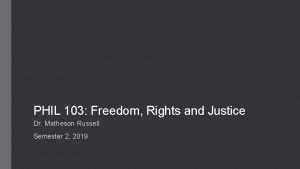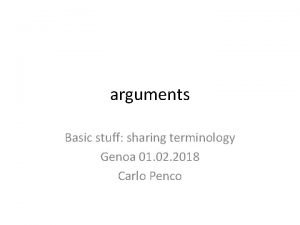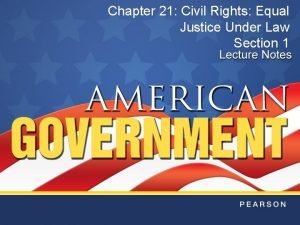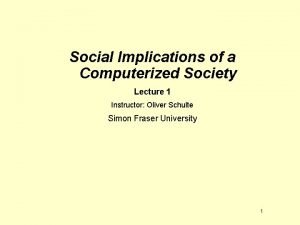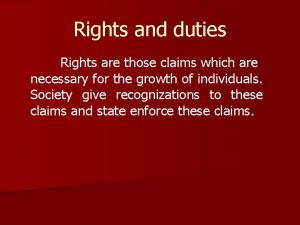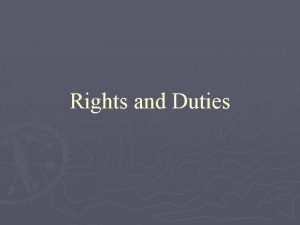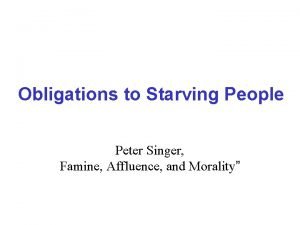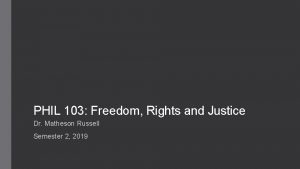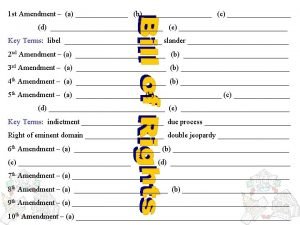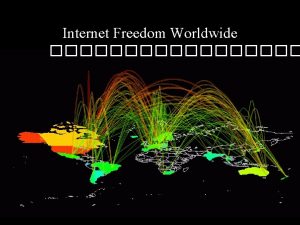PHIL 103 Freedom Rights and Justice Dr Matheson











- Slides: 11

PHIL 103: Freedom, Rights and Justice Dr. Matheson Russell Semester 2, 2019

Lecture 9: Civil Disobedience Outline: 1. What is civil disobedience? 2. Why civil disobedience? 3. Civil disobedience today 4. Objections to the practice and responses 5. Justifying particular acts of civil disobedience 6. Conclusion

1. What is civil disobedience? Lawful protests Ordinary offences Civil disobedience Other forms of morally motivated breaking of the law

1. What is civil disobedience? Civil disobedience 1. Morally-motivated lawbreaking 2. Targeting laws or policy decisions 3. Aimed at applying pressure to bring about change 4. Must be non-violent? 5. Must be public? 6. Must be willing to accept punishment? 7. Can also target non-governmental actions, e. g. corporations?

2. Why civil disobedience? Strategic reasons for engaging in civil disobedience (as opposed to other forms of democratic action):

3. Civil disobedience today

3. Civil disobedience today

3. Civil disobedience today

4. Objections Consequentialist objections • Without strict obedience, the state will collapse. • Civil disobedience is disruptive, costly, and disorderly, hence is irresponsible. • Civil disobedience can be socially divisive. • Civil disobedience can inspire further civil disobedience. • Civil disobedience can encourage disrespect for the law.

4. Objections Principle-based objections • We have an obligation to obey the law (e. g. consent theories, fairness theories, natural duty theories). • The democracy objection: (i) civil disobedience is unacceptable when there are rights of free speech and lawful protest; (ii) laws passed democratically should be respected, and decisions by democratically elected officials honoured.

5. Justifying particular acts of disobedience A general defence of civil disobedience doesn’t mean that any particular act of civil disobedience will be justified. Kent Greenawalt: • For justification, nonviolence and publicness matter because they reduce the damage of violating the law. • Tactics should be proportionate to the evil against which civil disobedience is aimed; • For any particular act of civil disobedience, we need to consider both the morality of tactics and an evaluation of objectives. Willingness to accept penalties?
 Phil 103
Phil 103 Button button richard matheson characters
Button button richard matheson characters Positive freedom negative freedom
Positive freedom negative freedom Glorious freedom wonderful freedom
Glorious freedom wonderful freedom Define human rights
Define human rights Chapter 21 civil rights equal justice under law
Chapter 21 civil rights equal justice under law Negative rights vs positive rights
Negative rights vs positive rights Characteristics of rights
Characteristics of rights Legal rights vs moral rights
Legal rights vs moral rights Negative right
Negative right Littoral vs riparian rights
Littoral vs riparian rights Positive and negative rights
Positive and negative rights
